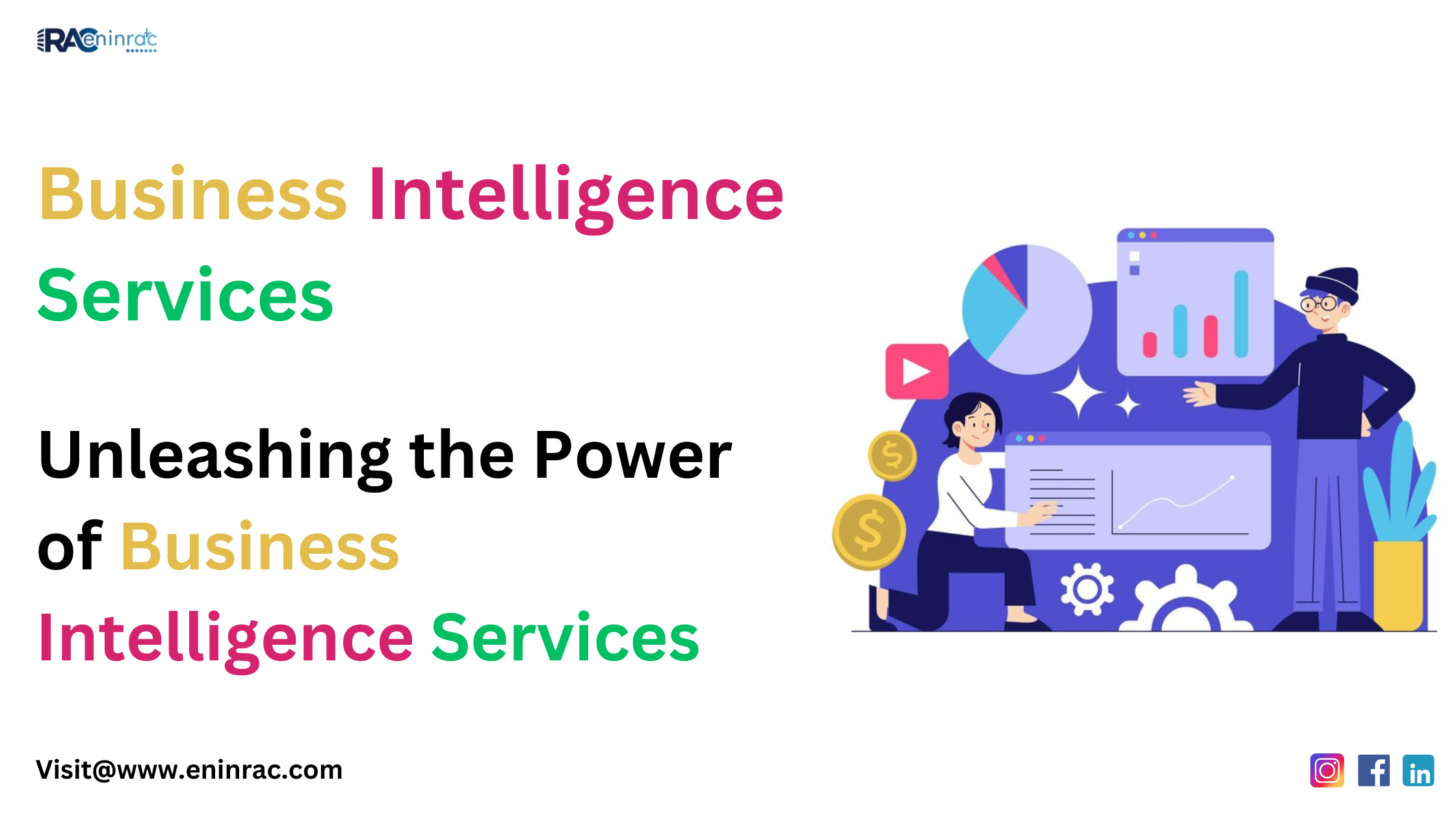In today’s competitive landscape, making informed decisions is crucial for success. Businesses that harness the power of data gain a significant edge over their competitors. This is where Business Intelligence Services, BI Intelligence, and Market Intelligence come into play. These tools transform raw data into actionable insights, enabling businesses to thrive in an ever-changing market.
Understanding Business Intelligence Services
What Are Business Intelligence Services?
Business Intelligence Services encompass a range of technologies, processes, and practices that collect, integrate, analyze, and present business information. The goal is to support better decision-making. By leveraging these services, organizations can convert their data into insightful information, driving strategic and tactical business decisions.
Benefits of Business Intelligence Services
Improved Decision-Making
BI services provide organizations with comprehensive data analysis, facilitating well-informed decisions. With accurate and timely data, businesses can identify trends, forecast outcomes, and plan effectively.
Increased Efficiency
By automating data collection and analysis, BI services save time and reduce human error. This leads to more efficient operations and allows employees to focus on strategic tasks.
Competitive Advantage
Access to real-time data enables businesses to respond swiftly to market changes and stay ahead of the competition. BI services offer valuable insights into customer behavior, market trends, and operational performance.
The Role of BI Intelligence
What Is BI Intelligence?
BI Intelligence refers to the advanced techniques and tools used to analyze complex data sets. This includes data mining, predictive analytics, and machine learning. BI Intelligence goes beyond traditional BI services by providing deeper insights and more accurate predictions.
Key Components of BI Intelligence
Data Mining
Data mining involves exploring large datasets to identify patterns, correlations, and trends. It helps organizations understand customer behavior, market trends, and operational inefficiencies.
Predictive Analytics
Predictive analytics uses statistical algorithms and machine learning techniques to forecast future events. By analyzing historical data, businesses can predict customer behavior, market changes, and potential risks.
Machine Learning
Machine learning algorithms improve automatically through experience. They analyze vast amounts of data to identify patterns and make accurate predictions. This enhances decision-making and optimizes business processes.
Applications of BI Intelligence
Customer Insights
BI Intelligence provides deep insights into customer behavior, preferences, and buying patterns. This enables businesses to tailor their products, services, and marketing strategies to meet customer needs.
Market Analysis
By analyzing market data, businesses can identify emerging trends, assess competitor performance, and understand market dynamics. This information is crucial for developing effective marketing and sales strategies.
Risk Management
BI Intelligence helps organizations identify and mitigate risks. Predictive analytics can forecast potential issues, allowing businesses to take proactive measures and minimize impact.
Leveraging Market Intelligence
What Is Market Intelligence?
Market Intelligence involves gathering and analyzing information about a company’s external environment. This includes competitors, market trends, customer behavior, and economic conditions. The goal is to provide actionable insights that drive strategic decision-making.
Key Elements of Market Intelligence
Competitor Analysis
Understanding competitors’ strengths, weaknesses, strategies, and performance is crucial. This information helps businesses identify opportunities and threats, and develop strategies to gain a competitive edge.
Market Trends
Identifying and analyzing market trends allows businesses to stay ahead of industry changes. This includes understanding shifts in customer preferences, technological advancements, and regulatory changes.
Customer Behavior
Analyzing customer behavior provides insights into their needs, preferences, and buying patterns. This information is essential for developing effective marketing, sales, and customer service strategies.
Benefits of Market Intelligence
Informed Decision-Making
Market Intelligence provides businesses with a comprehensive understanding of their external environment. This enables informed decision-making, reducing uncertainty and enhancing strategic planning.
Strategic Planning
By analyzing market trends and competitor performance, businesses can develop effective strategies to achieve their goals. Market Intelligence supports long-term planning and helps organizations stay ahead of the competition.
Enhanced Customer Experience
Understanding customer behavior allows businesses to tailor their products and services to meet customer needs. This leads to improved customer satisfaction, loyalty, and retention.
Integrating BI and Market Intelligence for Business Success
The Synergy of BI and Market Intelligence
Combining Business Intelligence Services with Market Intelligence creates a powerful toolset for business success. While BI focuses on internal data analysis, Market Intelligence provides insights into the external environment. Together, they offer a holistic view of the business landscape.
Strategies for Integration
Unified Data Platform
Integrating BI and Market Intelligence requires a unified data platform. This platform should collect, store, and analyze data from various sources, providing a comprehensive view of the business.
Advanced Analytics
Leveraging advanced analytics tools, such as predictive analytics and machine learning, enhances the insights derived from BI and Market Intelligence. These tools enable businesses to identify patterns, forecast outcomes, and make data-driven decisions.
Collaborative Approach
Collaboration between different departments, such as marketing, sales, and operations, is crucial for effective integration. Sharing insights and working together ensures that the entire organization benefits from the combined power of BI and Market Intelligence.
Real-World Applications
Retail Industry
In the retail industry, integrating BI and Market Intelligence can optimize inventory management, enhance customer experience, and improve sales forecasting. By understanding customer preferences and market trends, retailers can stock the right products and tailor their marketing strategies.
Financial Services
Financial institutions can leverage BI and Market Intelligence to assess market risks, identify investment opportunities, and enhance customer service. Predictive analytics can forecast market changes, helping financial organizations make informed investment decisions.
Healthcare Sector
In healthcare, BI and Market Intelligence can improve patient care, optimize resource allocation, and enhance operational efficiency. Analyzing patient data and market trends helps healthcare providers offer personalized treatments and improve service delivery.
Conclusion
In an increasingly data-driven world, leveraging Business Intelligence Services, BI Intelligence, and Market Intelligence is essential for business success. These tools provide valuable insights that drive informed decision-making, enhance efficiency, and offer a competitive advantage. By integrating BI and Market Intelligence, businesses can gain a holistic view of their operations and the market, enabling them to thrive in a dynamic environment. Embracing these technologies not only ensures survival but also paves the way for sustainable growth and success.





